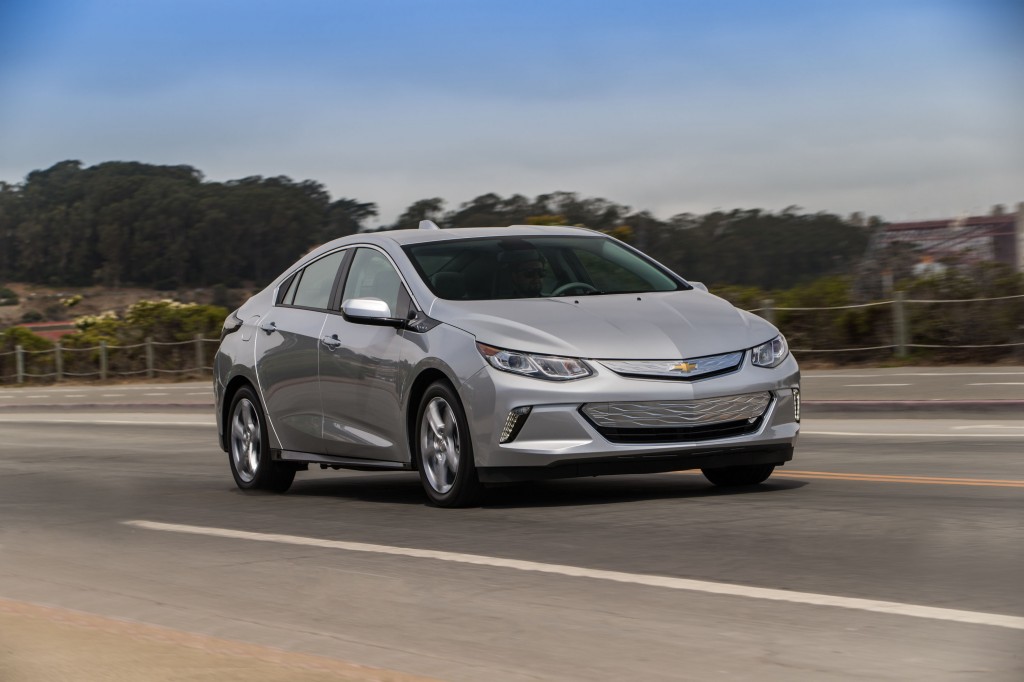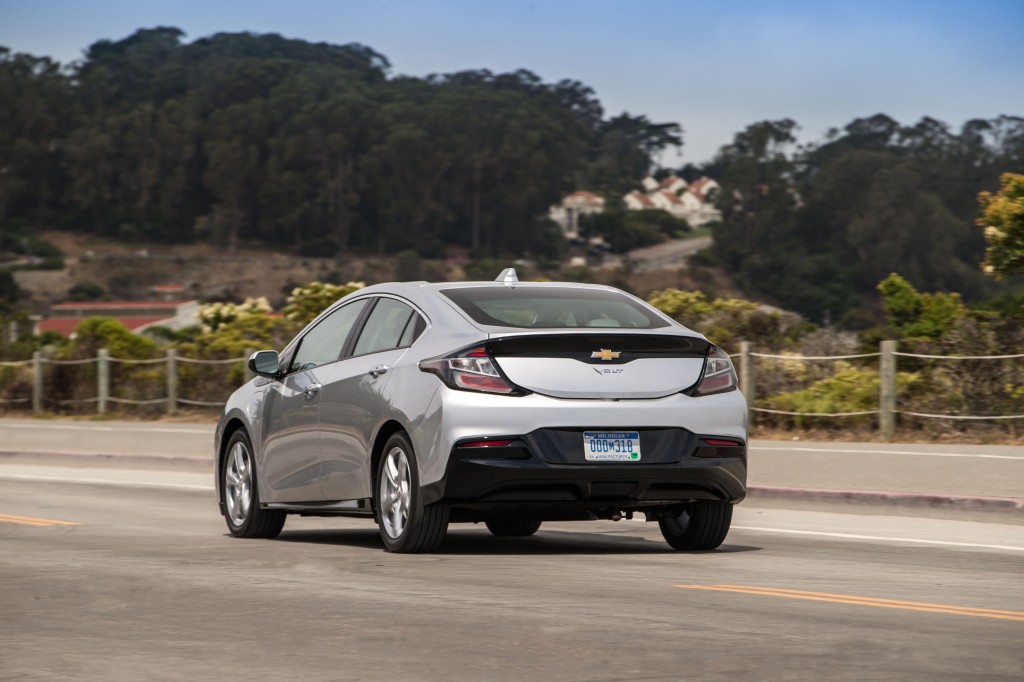Small SUVs are all the rage, steadily eating into sales of passenger sedans and hatchbacks of pretty much every size.
It's not just limited to North America, either: the trend is global, which is why several makers have jacked up perfectly standard front-wheel-drive hatchbacks and turned them into "crossover" utility vehicles.
Now GM may be shaking up its product lineup to redirect its plug-in hybrid technology toward smaller SUVs as well.
DON'T MISS: Chevrolet CrossVolt Trademark Renewed: AWD Electric Car In Chevy's Future? (Dec 2014)
And a news report yesterday suggests that it's at least possible that the idea of Chevrolet Volt plug-in hybrid technology in a small crossover could at last hit the market.
According to a report by the Reuters news service late yesterday, General Motors and the United Auto Workers union are in talks about future products and plant allocations, specifically looking at how declining passenger-car sales will affect total U.S. factory jobs at GM.
That piece contains one nugget for Volt fans: it refers to a "new gasoline-electric crossover model" that could replace the current generation of the Chevy Volt in 2022.

2018 Chevrolet Volt

2018 Chevrolet Volt

2018 Chevrolet Volt

2018 Chevrolet Volt
Reuters identified GM's Detroit-Hamtramck Assembly Plant as particularly vulnerable because it builds solely passenger cars, all of them with low sales: the Buick LaCrosse, Cadillac CT6, Chevrolet Impala, and Chevrolet Volt.
It also suggested that GM might be considering the cancellation up to six passenger cars for North America in 2020 and beyond.
As well as the three above, it also named the Cadillac XTS and Chevrolet Sonic.
The company's pioneering battery-electric car, the 238-mile 2017 Chevrolet Bolt EV launched last December, shares its production plant with the Chevrolet Sonic lineup of subcompact hatchbacks and sedans.
READ THIS: Chevy Bolt EV plant shutdown extended, due to slow Sonic sales
According to a comment by Don Lockrey, who identified himself as an employee at GM's Orion Assembly Plant, where the two are built, the lines at that factory are being reshuffled to switch for two Sonics for every Bolt EV to a 50/50 split.
That likely says less about the growing sales of the Bolt EV than it does about plummeting deliveries of the aging Sonic, which traditionally runs at multiples of the Bolt EV sales rate thus far.
Now in the third model year of its second generation, the Chevrolet Volt continues to offer the highest electric range of any plug-in hybrid (53 miles) except for the range-extended electric BMW i3 REx, which this year is rated at 97 miles.

2018 Chevrolet Equinox 2.0T
The Volt has consistently sold at rates averaging 1,500 to 2,000 cars per month, but it is a relatively cramped compact five-door hatchback, a body style that is falling out of favor in line with four-door sedans.
Since its inception, the Volt has also suffered from inconsistent marketing and the disinclination of many franchised Chevrolet dealers to educate possible buyers about the new powertrain—a problem that remains even today.
That said, there's no denying that even Volt fans consistently ask why the excellent Volt plug-in hybrid powertrain hasn't been offered in a small crossover similar to the Chevrolet Equinox, which was redesigned for 2017.
CHECK OUT: 2018 Chevrolet Volt plug-in hybrid carries over with few changes
With news that the 2019 Volvo XC40 compact crossover will offer a plug-in hybrid version using a 3-cylinder engine, following its larger XC60 and XC90 plug-in hybrid SUVs, it appears that other carmakers have exactly those plans.
Which is why it's worth remembering that Chevrolet renewed its trademark on the "CrossVolt" model name way back in 2014.
Let the rumors and hypothesizing begin.
_______________________________________













